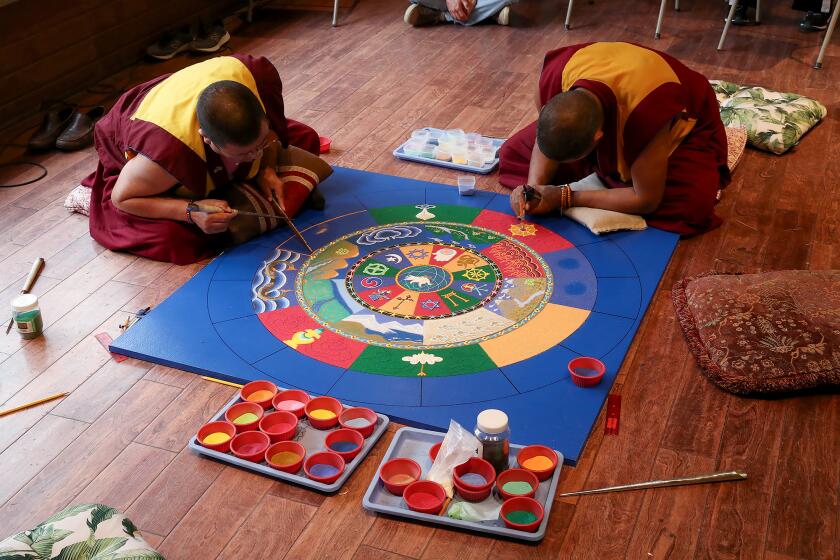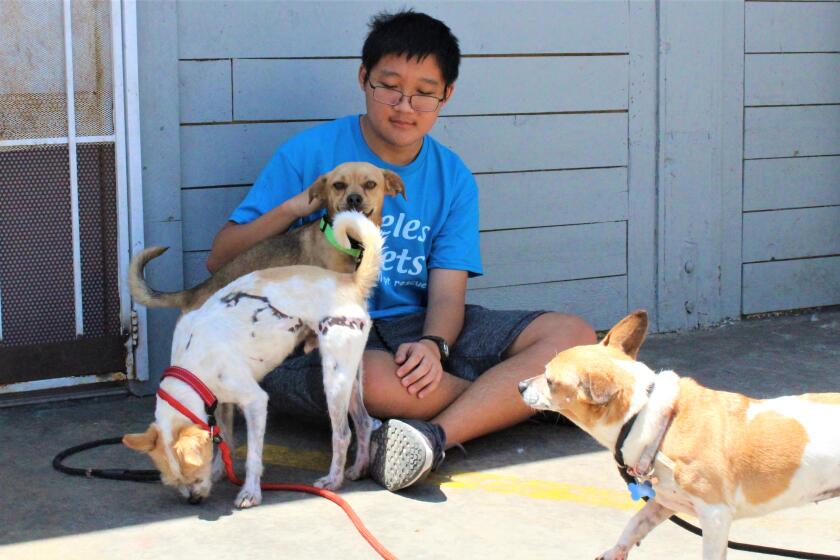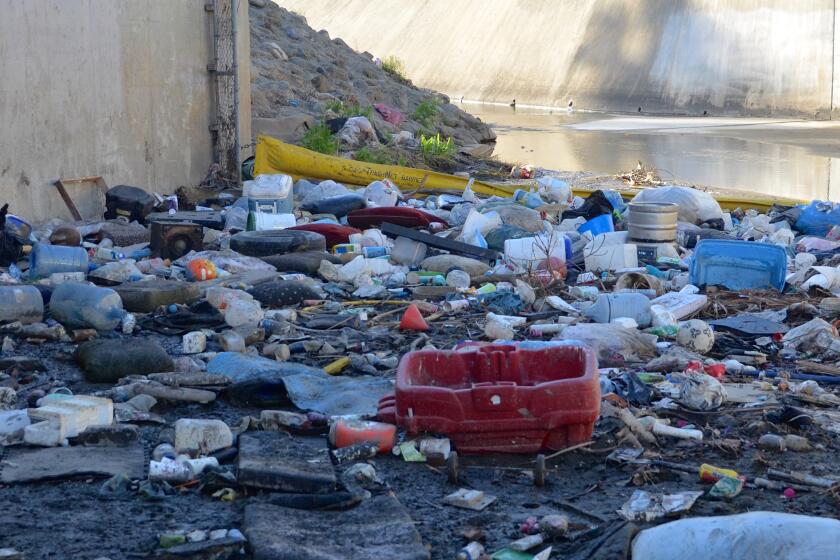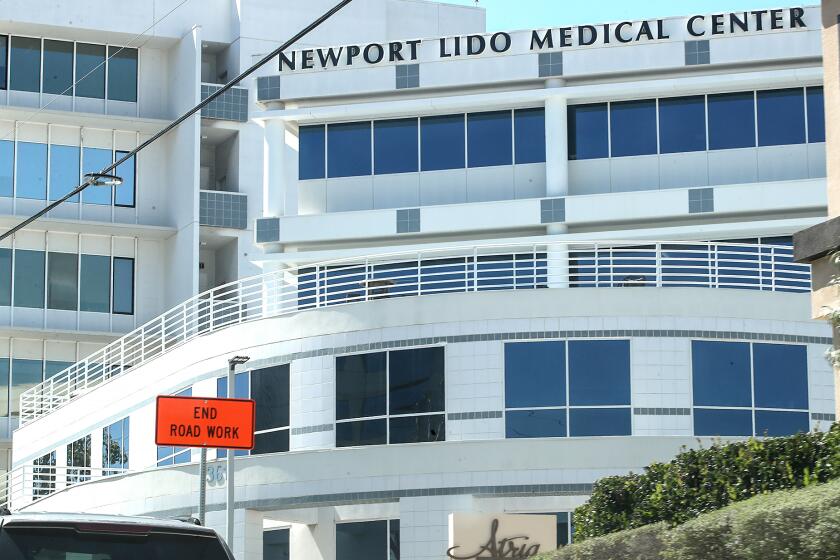Huntington Beach debuts its first Mobi-Mat for easy beach access
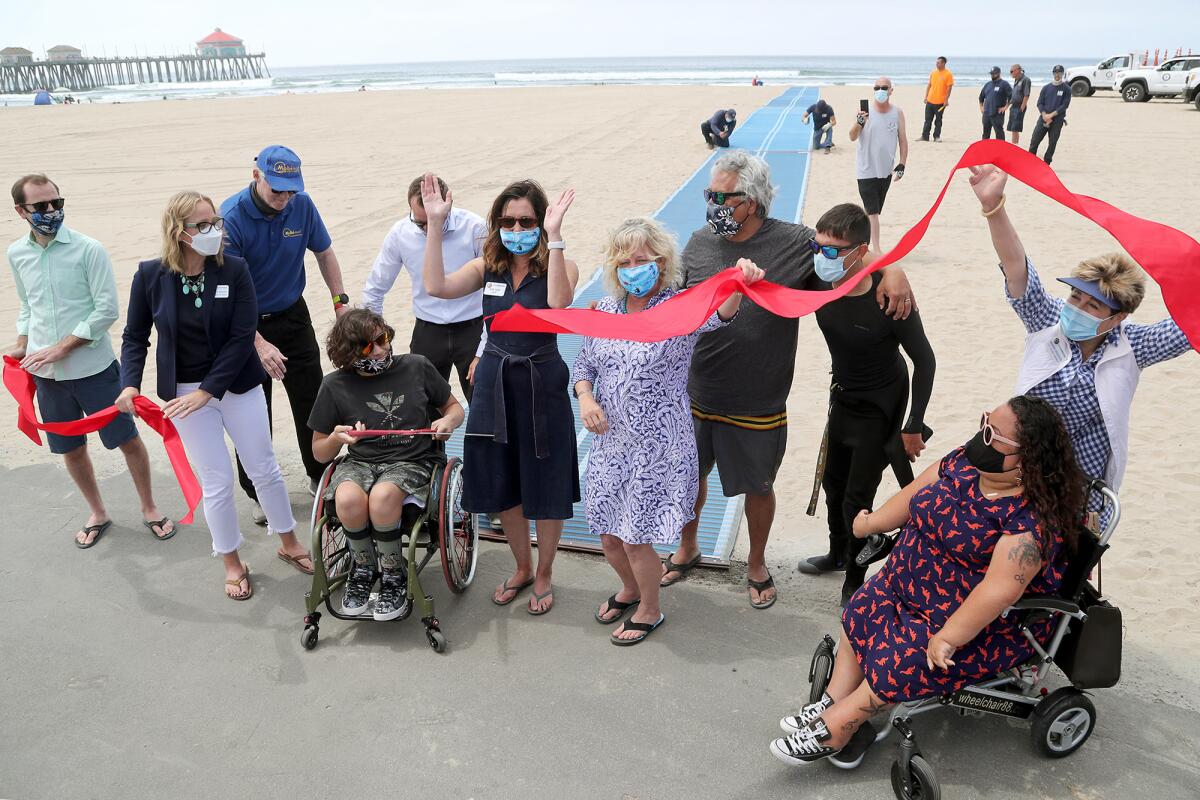
Stuart Jensen has been surfing the north side of the Huntington Beach Pier since the late 1970s.
Surfing at the home break became a family tradition — even for Jensen’s youngest son, Kumaka, who was born with spina bifida.
Kumaka, 14, has an active lifestyle and adaptive surfing is one of his favorite activities, along with acting and competing in WCMX. Confined to a wheelchair, though, it was difficult for him to access the beach.
That changed Wednesday.
The city of Huntington Beach rolled out its first “Mobi-Mat” for easier beach access during a ribbon-cutting ceremony.
The long blue Mobi-Mat is five feet wide and can be rolled up as needed. It extends from the bike trail turnaround loop, located on the beach near Pacific Coast Highway and 6th Street, all the way to just south of Lifeguard Tower No. 6.
“You can see the size of the beach,” Stuart Jensen said, gesturing up near PCH. “You park there, and it’s almost two football fields [to get to the water]. We usually would go to places that are a little bit closer, like Doheny or Newport Beach, places where the sand is not so long.”
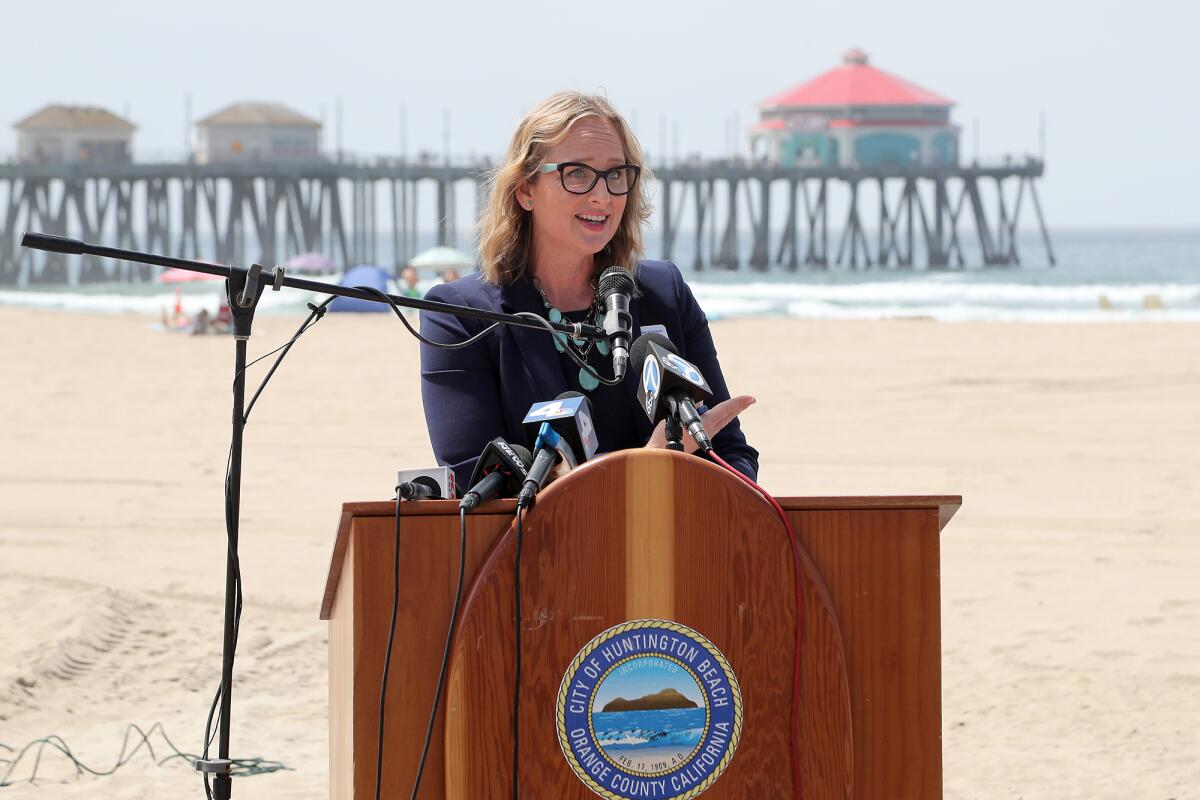
The Mobi-Mat, made out of recycled polyester, should benefit beachgoers who have difficulty accessing the shoreline, including people pushing strollers. Kumaka’s adaptive surf therapy instructor, David Gins, got in touch with Councilwoman Natalie Moser last fall and pitched her on the need.
Until the installation, Gins had to carry Kumaka from the bike trail circle across the sand and to the beach.
“Before, his brother would do it, who’s [6-foot-8],” Gins said. “I didn’t realize what a task it was for him until I actually had to do it. It’s great now to have this here for his family … I told Kumaka that it’s an amazing day. His voice is going to be heard.”
Gins is now a member of the Huntington Beach Public Works Commission, appointed by Moser. She liked his idea so much that she brought it to city management.
Moser said Wednesday that she has learned that for some with disabilities, having easy access to the ocean can make a big difference in their quality of life.

“Even though we have disabled parking [available] in our parking lots, there was actually no real pathway to get from paved areas like this down to the ocean,” she said. “I did a little bit of research and found the Mobi-Mat, and shared with [city staff] this environmentally friendly new product for our city.
“They were so solutions-oriented. Within a week or two they came back and said, ‘I think we can do this. I think this is possible.’ It was truly an opportunity for a new Council member to see how government should work, to really help everyone.”
Huntington Beach Public Works Director Sean Crumby said the Mobi-Mat cost about $10,000.
Crumby, Mayor Kim Carr and Orange County Supervisor Katrina Foley were also among the speakers at the ribbon-cutting ceremony.
Carr led off her comments with a quote from the late actor Christopher Reeve, who was disabled after an equestrian accident: “So many of our dreams at first seem impossible, then they seem improbable. Then, when we summon the will, they seem to become inevitable.”
Carr said she hopes more Mobi-Mats can be installed in Huntington Beach. She said she wishes one could have been available sooner, during rehabilitation for her husband Steve, who suffered a heart attack while surfing in October 2019.
“It took us six months before we could back down to the water so he could put his feet in the ocean, because there was no accessible way for him to get down there,” Carr said. “What a benefit this would have been, because the ocean is so healing ... This is such an amazing day.”
All the latest on Orange County from Orange County.
Get our free TimesOC newsletter.
You may occasionally receive promotional content from the Daily Pilot.

